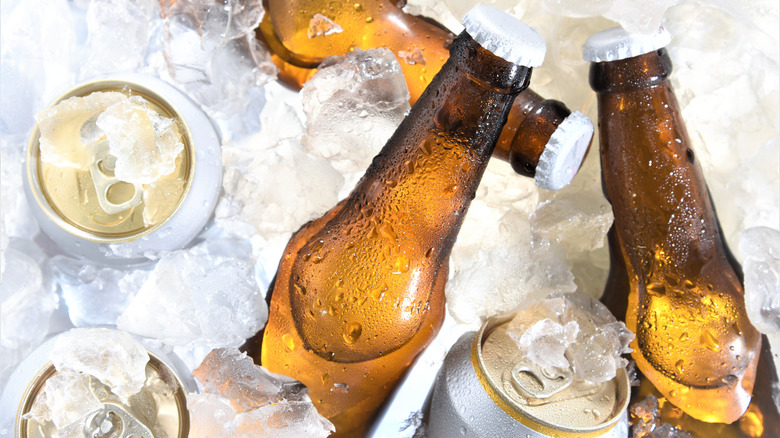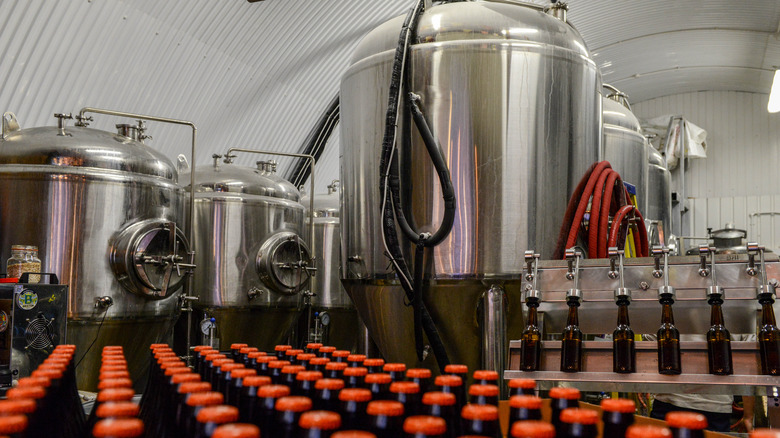Why You Should Pay Attention To The Expiration Date On Beer
With craft beer finding its way into upscale eating, and even grocery stores releasing their own line of brews, it's safe to say that we're in a golden era of grabbing a cold one. The styles are endless and breweries keep popping up on every corner. You're staring at the endless selection but what characteristics to consider?
Freshness is paramount. The best way to preserve flavor from source to sip is to drink from a draft, explains beer manager Benjamin Pratt of New York City's As Is to Bon Appetit. Taps lend qualities to beer irreplaceable in a bottle — the consistent pressurization sustains carbonation, and kegs aren't exposed to oxygen before a pour. Plus, drafts curtail beer's principal detriments: Time, heat, light, and oxygen, via Serious Eats. Kegs typically have a faster turnover, are continually kept cold, and allow no light to hit the beer unlike in a bottle.
Nevertheless, when it comes to drinking outside of a bar, nothing beats a 6-pack for convenience. So next time you're shopping for beer, pay attention to the expiration date and here's why.
Buying beer soon after bottling guarantees optimal flavor
Freshness is the priority for packaged beer. While expired beer isn't necessarily harmful to consume, it does lose nuance and aroma over time. However, it can be difficult figuring out the age of a bottled brew can be difficult. The best way to know is by looking at the bottling date; it'll be a surefire sign of age. Anything less than three months old is close to the original aroma. For beers on clearance, an double-check is a good idea. Keep in mind there are deviations, with larger, more established breweries, better tech will sustain freshness more than a can from a small brewpub, per Black Hops.
Sometimes breweries print a best-by or expiration date rather than an origin time. This is a less favorable metric because it's hard to know how long has passed since it was brewed. If it's near or after the best by day, it's better to pass. A priority for knowing a beer's age is especially true for hoppy beers, which degrade quicker than other styles. In the varied world of beer, there are, of course, exceptions to the freshness rule. Higher ABV beers, like barrel-aged ales and stouts, are great to cellar, according to Firestone Walker.
Keep in mind that the buying location matters, too. A trip to the brewery for fresher cans may be well worth the effort. And most importantly, don't forget the most crucial step — sit back, sip, and enjoy.

